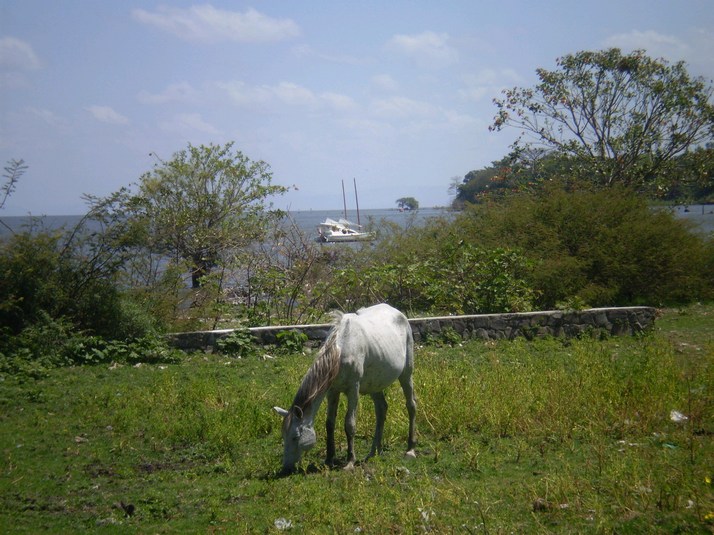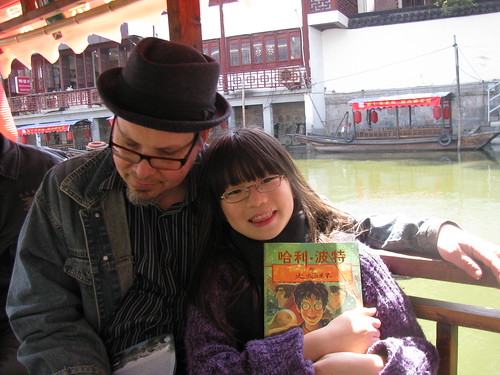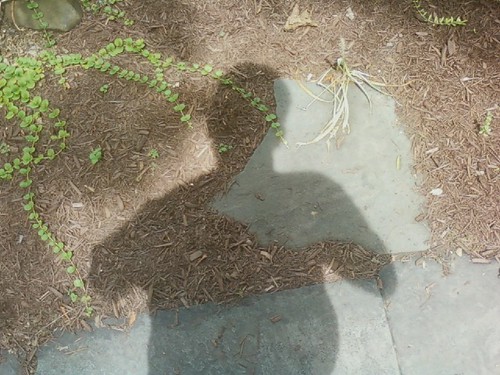|
|
Saturday, July 9th, 2011
Here are a few resources for the "el maestro de Tarca" poems and more broadly, Songs of Cifar and of the Sweet Sea. I will add to this list over the coming weeks if I find more that seem worth including.
- Sergio RamÃrez, a member of Nicaragua's Academia de la Lengua, delivered a paper on El maestro de Elqui: la narrativa de Pablo Antonio Cuadra when he entered the academy in 2003. It is online at RamÃrez' home page. A shorter version of the same paper is at La Prensa Literaria. RamÃrez also has a short piece in Ancora from 2002, in which he seems to indicate that el maestro de Tarca is Cuadra himself.
- Folk musician Carlos MejÃa Godoy recorded his album "Cantos de Cifar" in 1992. A few tracks are online at YouTube, and I found "El maestro de Tarca" (the first poem in the series) online at Radio La PrimerÃsima.
- The full text of the book is online at turtleislands.net.
posted afternoon of July 9th, 2011: Respond
➳ More posts about Poets of Nicaragua
|  |
|
In the third "teachings of el maestro de Tarca" poem, the customary introduction is reversed: here Cifar is speaking to the teacher. This suggests to me that the other poems in this series, where el maestro is speaking "to me" or "to us", are told from the POV of Cifar. The two main difficulties for me in translating this poem were the conditional tense of "jurarÃa" and the parallelism in the final two lines. I'm not really sure what conditional tense does -- from its name it sounds like it has a similar function to subjunctive. Schulman translates "jurarÃa" as "I would swear", which sounds ok, but makes me ask what the condition is. I am going with "I could swear" which sounds a little more natural to my ears. (As a weak bonus, "I could swear it" scans the same as "jurarÃa" -- though in the rest of the poem, I am not doing much to preserve the metric pattern.) The last two lines, el maestro's response to Cifar, are the koanic element of this poem. In the original there is a strong parallelism: "Lo conocido/ es lo desconocido." I am going with a literal rendering to preserve this parallelism even though I think it mangles the meaning of the words slightly. Schulman uses the wordy "That which is known/ is the unknown", which I think is slightly closer to Cuadra's meaning, but not nearly as pleasant to read.
EL MAESTRO DE TARCA (â…¢)
Maestro, dijo Cifar,
seguà tu consejo
y crucé el Lago
buscando la isla desconocida.
Fui con viento benévolo
a la más lejana, virgen y perdida
Pero
que yo conocà esa isla
jurarÃa!
que su sonoro acantilado
devolvió mi canto un dÃa
jurarÃa!
que era la misma mujer
casi lo jurarÃa!
Sonrió el maestro y dijo:
Lo conocido
es lo desconocido. |
EL MAESTRO DE TARCA (â…¢)
Maestro, said Cifar,
I followed your counsel
and crossed the Lake
in search of the unknown island.
I sailed with a gentle wind
to its farthest point, untouched and lost
But
I knew this island
I could swear it!
her echoing cliffs
had once already returned my song
I could swear it!
it was the same woman
I could almost swear it!
El maestro smiled and spoke:
The known
is the unknown. |
The fourth poem in the series is a sweet little gem.
EL MAESTRO DE TARCA (â…£)
Dijo el maestro
de Tarca:
Coge la cigarra
del ala
Al menos
llevas en la mano
el canto.
|
EL MAESTRO DE TARCA (â…£)
Thus spoke el maestro
de Tarca:
Seize the locust
by its wing
At least
carry in your hand
its song.
|
(I am tampering with the voice of the verb "llevas" in the next-to-last line -- Schulman renders it as "you carry" which is true to the original; whereas "coge" is imperative, "llevas" is indicative.) (Update: here is a better idea.)
posted afternoon of July 9th, 2011: Respond
➳ More posts about Readings
|  |
|
Scattered throughout Cuadra's Songs of Cifar and of the Sweet Sea are eleven short (even "koanic") poems titled "El maestro de Tarca" -- these seem different from the rest of the text. They are printed in italics, and they all begin with the phrase "El maestro de Tarca was telling us" or "was telling me" or similar. I think these poems might be the framework around which the rest of the book is built... Not sure, but that is anyway an interesting idea. Tarca is not known to Google Maps; other Internet sources suggest it is on the island of El Carmen, off the western shore of Lake Nicaragua. Schulman translates "maestro" as "master"; it could also be translated "teacher". My impulse is to leave the phrase "el maestro de Tarca" untranslated. I'm interested this morning in the ninth poem of this series, one which Schulman and Zavala do not include in their edition. It presents a few challenges for the translator; key among them is the term "La Alegradora". "Alegrar" is "gladden", so "alegradora" would be "someone who makes you happy" -- span¡shd!ct.com gives it as an archaic term for "jester". This is pretty clearly not the meaning intended in the poem; a little digging around with Google* turns up a blog entry from No-Nan-Tzin [you will get an adult content warning when clicking this link, you can safely ignore it], who tells us that "alegradora" is the Spanish rendering of the Nahuatl term "tlatlamiani", a prostitute in pre-Columbian Mexico. Well: "prostitute" works semantically in the poem; but why did Cuadra not use "La Prostituta"? Was "alegradora" still idiomatic in 20th-Century Nicaragua? Is the usage intentionally archaic, hearkening back to ancient times (this seems likely)? I believe the Aztec empire included Nicaragua; so this is my working assumption, and I am going to leave "La Alegradora" untranslated. But if a Nicaraguan reader would recognize it immediately as meaning "prostitute", this may be a poor choice.
EL MAESTRO DE TARCA (â…¨)
El maestro de Tarca
me decÃa:
La Alegradora
con su cuerpo da placer,
no con su recuerdo.
Con la mano hace señas
con los ojos llama,
no con su recuerdo.
La Alegradora
es el puerto
la tierra
que sólo es del pobre
en la noche.
|
EL MAESTRO DE TARCA (â…¨)
El maestro de Tarca
was telling me:
La Alegradora
gives you pleasure with her body,
not with her remembrance.
With her hand she beckons
with her eyes she calls you hence,
not with her remembrance.
La Alegradora
is the port
is the land
which the poor man only knows
by night.
|
 * The same round of searches also brought to my attention this ode by Aztec prince Tlaltecatzin, who praises his love as a "precious toasted huitlacoche". The original Nahuatl is here.
posted morning of July 9th, 2011: 3 responses
➳ More posts about Translation
|  |
Monday, July 4th, 2011
 Source material for a poem I posted today in comments at Dave Bonta's Morning Porch -- this is from Pablo Antonio Cuadra's Songs of Cifar and of the Sweet Sea (which, happy day, I discover Tony Bigras of turtleislands.net has uploaded in full). Translation is my own, with reference to that of Grace Schulman and Ann McCarthy de Zavala. Source material for a poem I posted today in comments at Dave Bonta's Morning Porch -- this is from Pablo Antonio Cuadra's Songs of Cifar and of the Sweet Sea (which, happy day, I discover Tony Bigras of turtleislands.net has uploaded in full). Translation is my own, with reference to that of Grace Schulman and Ann McCarthy de Zavala.
Caballos en el Lago
Los caballos bajan al amanecer.
Entran al lago de oro y avanzan
-- ola contra ola
el enarcado cuello y crines --
a la cegadora claridad.
Muchachos desnudos
bañan sus ancas
y ellos yerguen
ebrios de luz
su estampa antigua.
Escuchan
-- la oreja atenta --
el sutil clarÃn de la mañana
y miran
el vasto campo de batalla.
Entonces sueñan
-- bulle
la remota osadÃa --
se remontan
a los dÃas heroicos,
cuando el hierro
devolvÃa al sol sus lanzas
potros blancos
escuadrones de plata
el grito
lejanÃsimo de los pájaros
y el viento.
Pero vuelven
(Látigo
es el tiempo)
Al golpe
enfilan hacia tierra
-- bajan la frente --
y uncido
al carro
el sueño
queda
atrás
dormido
el viento.
| |
Horses in the Lake
The horses come down at daybreak.
They enter into the golden lake, and on
-- wave after wave
the long arched necks, the manes --
into the blinding clearness.
And naked boys
are bathing their haunchesdrunk with light
they're lifting up their ancient image.
They listen
-- ears perked up --
to the morning's subtle trumpet
and they gaze
on the enormous field of battle.
And then they dream-- and glimpse
remote effrontery -- rising back up
to the days of glory,
when steel met
the sun's proud lances
stallions white
and squadrons silver
the cries
of distant birds and
of the wind.
But they return
(Before
the whip of time)
And struck
move slowly back to land
-- they bow their heads --
they're yoked to
the wagon
the dream
remains
behind
asleep
the wind.
|
posted afternoon of July 4th, 2011: Respond
➳ More posts about Writing Projects
|  |
posted morning of July 4th, 2011: 1 response
➳ More posts about Birthdays
|  |
|
Woke up with a song ringing in my ears and a poem drifting through my head.
My shadow has no memory of
that frantic, panicked, pell-mell flight --
No pain or expectations, craving,
dying to escape his bondage.
Look, he's crouching, vibrates with
desire that only shadows feel;
He's poised to spring, to pounce, as if
the shadow of some predator,
Some dusky, fleeting contrast on
the sidewalk of my consciousness,
Some ragged blank impression on
the sand dunes of my memory --
We move, the spell is broken, sliding
frictionless along the garden
Seeking our reflection in
the pools of last night's rainfall,
In the golden machinations of the sunlight from the east.
posted morning of July 4th, 2011: Respond
➳ More posts about Poetry
 |
Saturday, July second, 2011
 Thanks to young urban bicycle enthusiast Dorothy Gambrell, today I found out about Saveur's Recipe Comix -- right now I am drinking (courtesy of A Softer World's Emily Horne) a Black Mischief -- this is Horne's take on a Kingsley Amis cocktail recipe, and boy oh boy is it smooth. Thanks to young urban bicycle enthusiast Dorothy Gambrell, today I found out about Saveur's Recipe Comix -- right now I am drinking (courtesy of A Softer World's Emily Horne) a Black Mischief -- this is Horne's take on a Kingsley Amis cocktail recipe, and boy oh boy is it smooth.
In general I am all in favor of mixing comix with other forms. Gambrell's recipe for Chocolate Ice-Cream is a good one, and the peripheral cartoony stuff adds to it, gives it resonance. I will remember this cocktail recipe because of how good it tastes, and also because of the A Softer World tie-in.
posted afternoon of July second, 2011: 5 responses
➳ More posts about Comix
|  |
|
A year or so ago, I was talking with Woody about interesting things to see in West Orange -- he told me how one time he had been walking up Valley to Northfield and had taken a meandering route... Eventually he found himself on "one of those dead-end streets behind Northfield" and had found a secret canyon, with a pedestrian bridge linking dead-end streets on either side of it. Ever since then I've been interested to find this place, and today (I'm pretty sure) I did. Eventually he found himself on "one of those dead-end streets behind Northfield" and had found a secret canyon, with a pedestrian bridge linking dead-end streets on either side of it. Ever since then I've been interested to find this place, and today (I'm pretty sure) I did. The canyon I found doesn't precisely meet Woody's description -- it looks like there has been some construction in the intervening years. Riding up Northfield past Seton Hall (a long slog of an uphill, but not steep enough to make me give up midway along), there are two streets to the left marked "Dead End", Carter Rd. and Beverly Rd. I road up the hill and then back down, and turned right on Beverly -- Turns out it is no longer a Dead End as the road has been looped around to connect it to Carter. (This must be a fairly recent development, Google Maps at least still thinks both streets dead-end.) Right where it loops around, there is the canyon Woody was talking about. No pedestrian bridge anymore, the loop crosses over the canyon and the stream is in a culvert there -- very pretty waterfall where it pours out of the culvert, I tried to get a photo but the maple tree in front of me had its own ideas... There is still no connection to the south -- the dead-end street south of the canyon, also called Beverly, is a private street and gated off.
posted morning of July second, 2011: Respond
➳ More posts about South Orange
|  |
Friday, July first, 2011
Time for a visit to the Scenes From a Multiverse store -- Jonathan is making some great wallpaper graphics available on a "pay what you like" basis, in hopes that "what you like" will be >0. Go spiff up your monitor and toss some bucks in the cup. While you're there you can pick up some spiffy tee-shirts as well.
posted evening of July first, 2011: Respond
➳ More posts about Wallpaper
|  |
Thursday, June 30th, 2011

"However much you feed a wolf, it always looks to the forest. We are all wolves in the dense forest of Eternity." This was written by the Russian poet Marina Tsvetaeva, the man said softly as he stroked the silver fur of the animal crouched in his arms. The animal pricked up its ears, then strained to look back at the dark copse of trees where shadows moved as if alive. As if alive and waiting to move out into the open.
Listen, this process called poetry is an exercise in imagining memory, and then having that memory snare and cherish imagination. Yet, every poem is and will be a capsule of territory in the perpetual present tense, a vessel taking on the ever-changing colors of the sea.-- Breyten Breytenbach
"Poetry is the Breath of Awareness"
Intimate Stranger
 (The Tsvetaeva quote is from her book of essays, Art in the Light of Conscience, tr. Angela Livingstone.)
posted evening of June 30th, 2011: Respond
➳ More posts about Intimate Stranger
| Previous posts
Archives  | | |
|
Drop me a line! or, sign my Guestbook.
•
Check out Ellen's writing at Patch.com.
| |















 Eventually he found himself on "one of those dead-end streets behind Northfield" and had found a secret canyon, with a pedestrian bridge linking dead-end streets on either side of it. Ever since then I've been interested to find this place, and today (I'm pretty sure) I did.
Eventually he found himself on "one of those dead-end streets behind Northfield" and had found a secret canyon, with a pedestrian bridge linking dead-end streets on either side of it. Ever since then I've been interested to find this place, and today (I'm pretty sure) I did.



